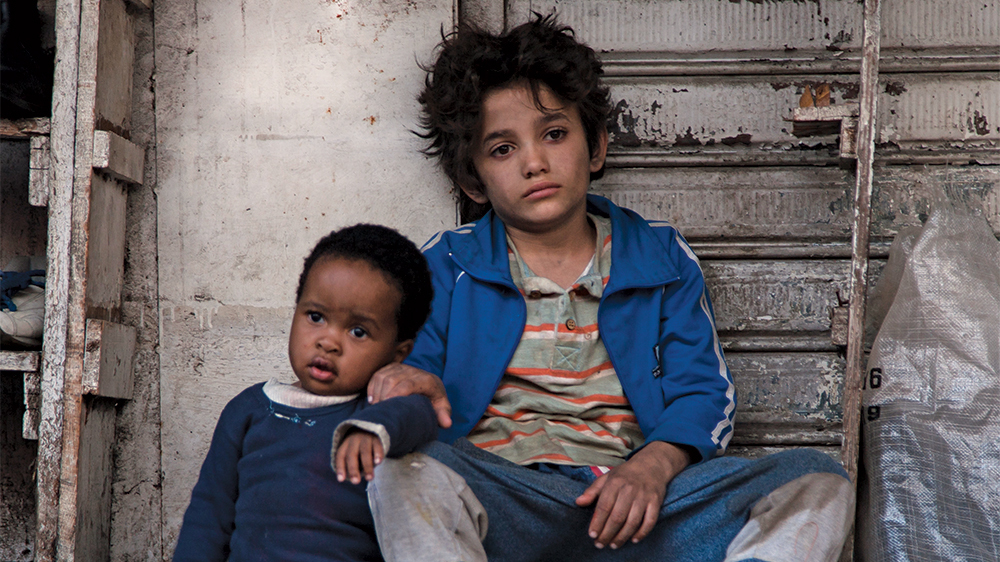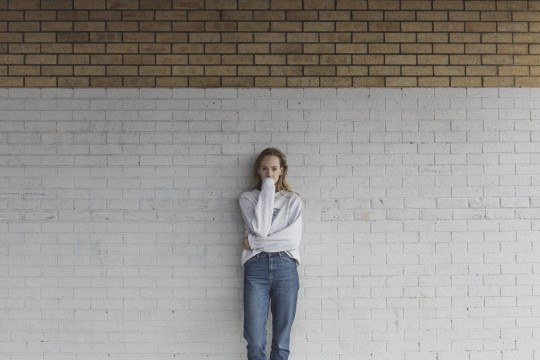“My life is dogshit.” Zain El Hajj, the young protagonist of Nadine Labaki’s third feature Capernaum, which competed for the Foreign Language prize at last week’s Oscars, is not having such a good time of it.
Twelve years old with an asterix (as a child to undocumented parents, there’s no birth certificate for confirmation), Zain endures a monotonous, shabby, profoundly unnourishing childhood in Beirut’s dilapidated urban sprawl. Played by Zain Al Rafeea, a Syrian refugee himself, the young lad lives with his large family in a rotting apartment owned by their cousin Assad, in whose shop some of the kids spend their days working. In the day they lug deliveries through blaring slum streets and at night they hustle powdered prescription drugs to shady loiterers. “Capernaum”, Arabic translated by the film as “chaos”, provides an apt descriptor for the low-level hostility of a life dodging gangsters and predators, vulnerable to the whims of a bureaucracy ready to deport you on sight, a nightmare rendered by the Lebanese film-maker and actress in a sweeping, gripping piece of social realism.
A sense of paralysis pervades the film; the in-your-guts feeling that things will never get better for those stuck in the betwixt non-world of the undocumented. Growth is actually a threat: when Zain’s sister Sahir gets her first period, he helps her wash out the stains. Puberty makes her illegible for marital transaction; and the untrustworthy Assad has a fondness for her. Eventually, she’s traded for some chickens, an injustice too far for the cynical Zain, who flees from home in disgust. On the streets, Zain finds refuge with an illegal African migrant named Rahil (Yordanos Shiferaw) who lives in what is basically a shipping container with her infant. She is picked up by the authorities, and Zain and the child are left to fend on their own, producing a poetic middle section with one of the best baby performances on the screen.
So, Capernaum is grim, but it’s a grimness rooted in a clear-eyed and open-hearted perspective of someone for whom this grinding, soul-killing poverty hits close to home. Pain is everywhere, but it’s not announced in ways that a Western pity piece might. Labaki lays out, matter-of-factly, the terrain of what existence at the bottom of the pecking order looks like: there are predatory and hostile forces, but little indulgence in heartstring-pulling violence or suffering. This kind of life is itself suffering. It is a form of violence.
The camera sits on faces sinking into spiritual pain. Zain has the stony, hollow expression of a kid who lost the luxury of sadness a long time ago. Distressing scenes are offset by touches of absurdism, like an elderly fairground worker who dresses up as Cockroach-Man (“Spider-Man’s cousin”), or when a pack of happy-clappy white Christians sing to the inmates of a crowded Beirut jail in a patronishing cheer-up session.
The film is a plea for a compassionate and intellectually braver consideration of undocumented persons, and seems to make a moral case against “undocumented” as a category itself. “We are parasites, we are nothing”, Zain’s father tells him when the boy demands his papers, and this nothing-status is a kind of death sentence. And there are power structures that benefit from a “parasite” class, like the employers who can get away with skirting wages, or the low-level gangsters ready to cycle kids into profane global networks of exploitation.
Flash-forwards tease us with Zain in handcuffs in a court room after an unknown act of violence, and details about what seems an improbable legal gimmick: a lawsuit against his parents for the act of being birth to him in the first place. There’s a slightly fantastical quality here: Zain articulates the essential injustice of his situation with a clarity beyond his years, but this isn’t far off the rough pragmatic idiom he’s already been forced to adapt, and it gives his anger an elevated from-the-mouths-of-babes urgency.
The conceit is inelegant, and boxes the film in as it moves towards resolution, but it’s a small blemish on an otherwise astonishing bloom, a uniquely arresting window into the institutionally invisible. Conor Smyth
Capernaum is out on limited release at Queen’s Film Theatre, Belfast and the Irish Film Institute and Light House Cinema, Dublin.





